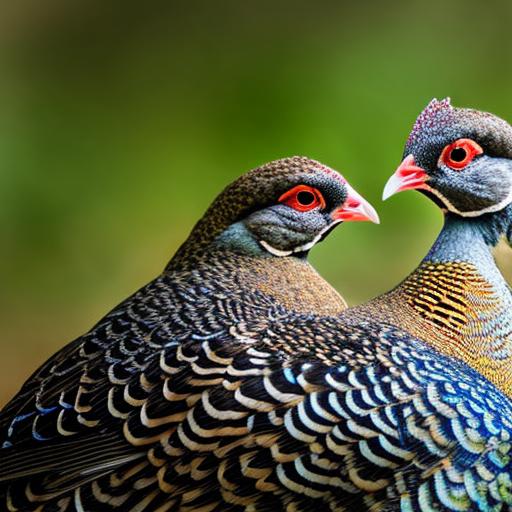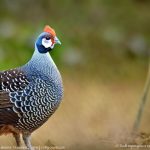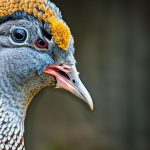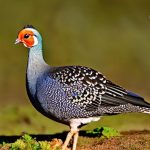When it comes to choosing the right enclosure for your poultry, there are several factors to consider. First and foremost, you’ll want to ensure that the enclosure is large enough to accommodate the number of birds you plan to keep. This will not only provide them with enough space to move around and exercise, but it will also help prevent overcrowding and reduce the risk of disease transmission.
Additionally, the enclosure should be sturdy and secure to protect your poultry from predators and the elements. Consider using materials such as wire mesh, wood, or metal to construct a durable and reliable enclosure. It’s also important to provide adequate ventilation to prevent the buildup of moisture and ammonia, which can lead to respiratory issues in your birds.
Finally, consider the location of the enclosure. It should be situated in an area that receives plenty of sunlight and is well-drained to prevent flooding. Additionally, it should be easily accessible for cleaning and maintenance. Taking these factors into consideration will help you choose the right enclosure for your poultry and provide them with a safe and comfortable living environment.
Key Takeaways
- Choose an enclosure that is spacious, well-ventilated, and provides protection from the elements for your poultry.
- Provide adequate shelter such as a coop or a shed to protect your poultry from extreme weather conditions.
- Ensure safety from predators by installing secure fencing, using predator-proof locks, and providing a safe area for your poultry to roam.
- Create a suitable roosting area with perches or nesting boxes for your poultry to rest and lay eggs.
- Provide access to fresh water and a balanced diet of poultry feed to keep your poultry healthy and well-nourished.
- Maintain a clean living environment by regularly cleaning the enclosure and removing waste to prevent the spread of diseases.
- Consider the surrounding environment and make adjustments to the enclosure to ensure the well-being of your poultry.
Providing Adequate Shelter
In addition to a secure enclosure, providing adequate shelter for your poultry is essential for their health and well-being. Shelter can come in the form of a coop, a run, or a combination of both, depending on the size and needs of your flock. The coop should be well-insulated to provide protection from extreme temperatures, drafts, and inclement weather. It should also have plenty of roosting space and nesting boxes for your birds to rest and lay eggs.
If you choose to have a run as part of your poultry shelter, it should be covered with wire mesh to protect your birds from predators such as hawks, foxes, and raccoons. Additionally, providing shade in the run will help keep your birds cool during hot weather. Consider planting trees or installing a shade cloth to create a comfortable environment for your poultry.
Ultimately, providing adequate shelter for your poultry is crucial for their safety and comfort. By ensuring that they have a secure and well-insulated coop and a protected run, you can help them thrive and stay healthy.
Ensuring Safety from Predators
One of the biggest threats to poultry is predators such as foxes, raccoons, hawks, and even domestic pets. Ensuring the safety of your birds from these predators is crucial for their well-being. There are several measures you can take to protect your poultry from predators, starting with securing the enclosure with sturdy fencing and wire mesh. This will help prevent predators from gaining access to your birds and keep them safe from harm.
Additionally, consider installing predator-proof locks on coop doors and windows to further deter unwanted visitors. You can also use motion-activated lights or sound devices to scare off nocturnal predators. Another effective method is to have a guard animal such as a dog or a goose that can help protect your flock from potential threats.
Regularly inspecting the enclosure for signs of damage or potential entry points for predators is also important. By staying vigilant and taking proactive measures, you can help ensure the safety of your poultry and minimize the risk of predator attacks.
Creating a Suitable Roosting Area
Roosting is a natural behavior for poultry, and providing them with a suitable roosting area is essential for their well-being. A roosting area should be elevated off the ground to protect your birds from predators and provide them with a safe place to rest at night. It should also be wide enough to accommodate all of your birds comfortably.
Consider using natural branches or wooden perches for your birds to roost on, as these materials are comfortable for their feet and allow for natural gripping. Make sure the roosting area is positioned away from drafty areas and has good ventilation to prevent moisture buildup.
Additionally, providing nesting boxes in the roosting area will give your hens a safe and comfortable place to lay their eggs. These boxes should be dark, quiet, and secluded to encourage nesting behavior in your birds.
By creating a suitable roosting area for your poultry, you can help them feel secure and comfortable, which will ultimately contribute to their overall health and well-being.
Providing Access to Fresh Water and Food
Access to fresh water and food is essential for the health and productivity of your poultry. Make sure that your birds have access to clean water at all times, as dehydration can lead to serious health issues. Consider using automatic waterers or water dispensers to ensure that your birds always have access to fresh water.
When it comes to food, provide a balanced diet that meets the nutritional needs of your poultry. This may include commercial feed, grains, fruits, vegetables, and supplements as needed. Make sure that feeders are kept clean and free from mold or contaminants that could harm your birds.
Additionally, consider providing access to grit and oyster shells, which are important for digestion and eggshell formation in laying hens. These can be offered in separate containers within the enclosure.
By providing access to fresh water and a balanced diet, you can help ensure the health and productivity of your poultry flock.
Maintaining a Clean Living Environment
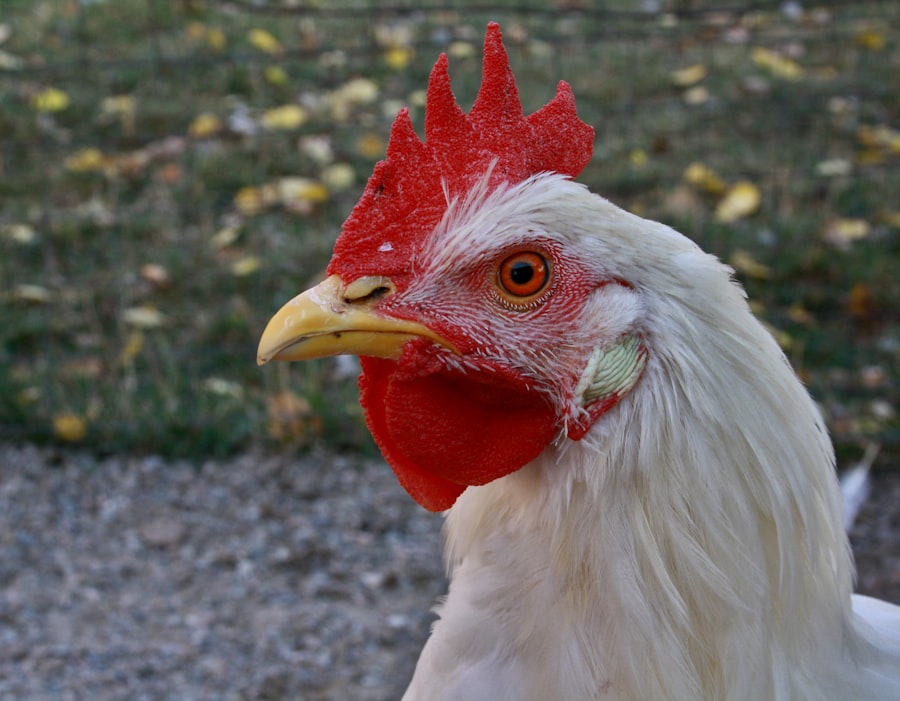
Maintaining a clean living environment is crucial for the health and well-being of your poultry. Regularly cleaning the coop, run, and roosting areas will help prevent the buildup of bacteria, parasites, and disease-causing organisms that can harm your birds.
Remove soiled bedding, droppings, and uneaten food from the coop on a regular basis to keep it clean and odor-free. Consider using natural bedding materials such as straw or wood shavings that are absorbent and easy to clean.
In addition to regular cleaning, consider implementing a dust bathing area for your birds. Dust bathing helps keep their feathers clean and free from parasites, so providing a designated area with sand or diatomaceous earth will encourage this natural behavior.
Finally, consider using natural pest control methods such as diatomaceous earth or beneficial insects to keep parasites such as mites and lice at bay.
By maintaining a clean living environment for your poultry, you can help prevent disease and promote their overall health and well-being.
Considering the Surrounding Environment
When setting up an enclosure for your poultry, it’s important to consider the surrounding environment to ensure the health and safety of your birds. Take into account factors such as climate, weather patterns, and local wildlife when choosing the location for your enclosure.
If you live in an area with extreme temperatures or inclement weather, consider insulating the coop and providing additional heating or cooling as needed. You may also need to provide extra shade or ventilation in hot climates to keep your birds comfortable.
Additionally, consider the presence of potential hazards such as toxic plants or chemicals in the surrounding environment. Remove any toxic plants from the vicinity of the enclosure and store chemicals such as pesticides and fertilizers in a secure location away from your birds.
Finally, consider the impact of local wildlife on your poultry flock. Take measures to protect your birds from predators such as raccoons, foxes, and hawks by securing the enclosure with sturdy fencing and wire mesh.
By considering the surrounding environment when setting up an enclosure for your poultry, you can help create a safe and comfortable living space for your birds.
If you’re considering adding guinea fowl to your poultry flock, it’s important to provide them with a suitable living environment. A well-designed coop is essential for their safety and well-being. For tips on creating the perfect space for your guinea fowl, check out this informative article on chicken coop portage. It offers valuable insights into coop design and maintenance that can be adapted to accommodate guinea fowl.
FAQs
What are the best housing options for guinea fowl?
Guinea fowl can be kept in a variety of housing options including coops, aviaries, or free-range systems. It is important to provide them with shelter from the elements and protection from predators.
What should be considered when choosing a housing option for guinea fowl?
When choosing a housing option for guinea fowl, factors such as space, ventilation, and protection from predators should be considered. Guinea fowl are active birds and require ample space to move around.
Can guinea fowl be kept with other poultry?
Guinea fowl can be kept with other poultry such as chickens and ducks, but it is important to introduce them carefully and monitor their interactions. Guinea fowl can be aggressive towards other birds, especially during breeding season.
Do guinea fowl need a roosting area?
Yes, guinea fowl require a roosting area to perch on at night. Providing them with a roosting area will help keep them safe from predators and provide them with a comfortable place to rest.
How can I predator-proof the housing for guinea fowl?
To predator-proof the housing for guinea fowl, it is important to use sturdy materials, secure locks, and wire mesh to prevent access from predators such as foxes, raccoons, and birds of prey. Additionally, installing motion-activated lights or alarms can help deter predators.
Meet Walter, the feathered-friend fanatic of Florida! Nestled in the sunshine state, Walter struts through life with his feathered companions, clucking his way to happiness. With a coop that’s fancier than a five-star hotel, he’s the Don Juan of the chicken world. When he’s not teaching his hens to do the cha-cha, you’ll find him in a heated debate with his prized rooster, Sir Clucks-a-Lot. Walter’s poultry passion is no yolk; he’s the sunny-side-up guy you never knew you needed in your flock of friends!

